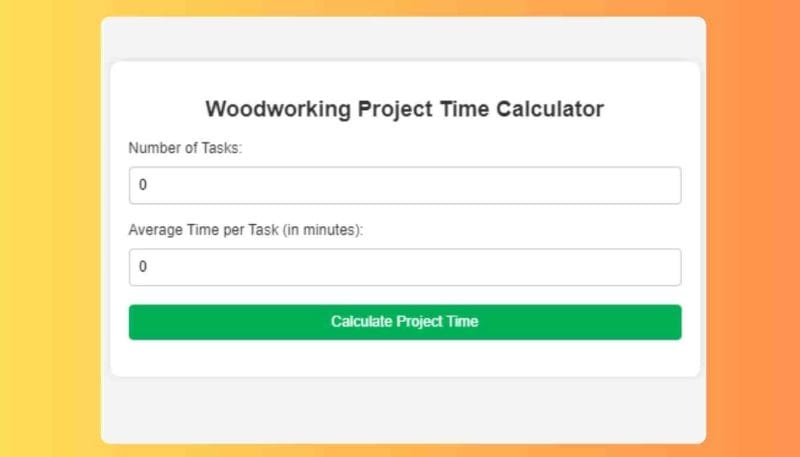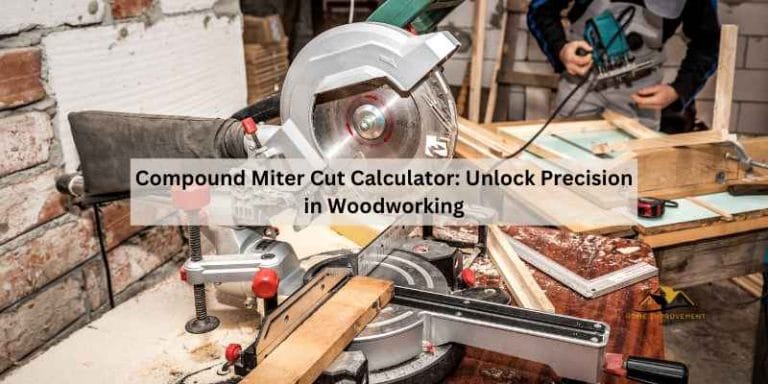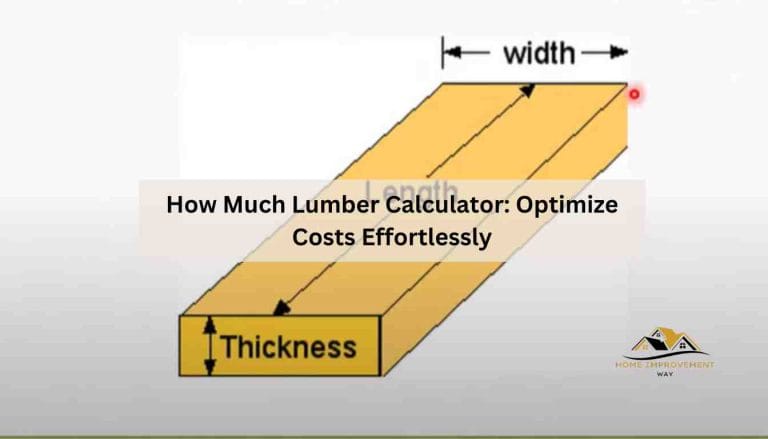Woodworking Project Time Estimator
Woodworking is a craft that blends art and skill. Get your projects done on time with our handy tips!
Woodworking Project Time Calculator
Understanding the Basics of Time Estimation
Knowing how long a project will take is key. It can be tricky, but we will make it simple!
Why Estimate Time?
- It helps plan your projects better.
- You can use your time wisely.
- It allows you to set realistic deadlines.
- You won’t be in a rush, so you make fewer mistakes.
Step-by-Step Guide to Estimating Woodworking Time
Follow these steps to guess how long your project will take.
Step 1: List All The Tasks
Write down every step, from cutting wood to adding finish.
Step 2: Break Down Complex Tasks
Some tasks are big. Cut them into smaller, easier steps.
Step 3: Assign Time To Each Task
Think about how long each step will take. Be honest with your skill level.
Step 4: Add Extra Time For Complex Tasks
Hard tasks need more time. Add a little extra to be safe.
Step 5: Consider Your Experience
If you’re new, tasks might take longer. That’s okay!
Step 6: Add Time For Setups And Cleanups
Don’t forget the time to set up your tools and clean up afterward.
Step 7: Account For Drying Or Curing Time
If your project uses glue or finish, it needs time to dry. Add this in too.
Step 8: Review And Adjust
Look at your list. Make changes if you need to. Now, you have your estimated time!
Factors Affecting Woodworking Time Estimation
Some things can change how long your project takes.
| Factor | How It Affects Time |
|---|---|
| Experience Level | Beginners may need more time than experts. |
| Tools Available | Better tools can make work go faster. |
| Project Complexity | Hard projects need more time. |
| Project Size | Big projects often take longer than small ones. |
| Material Quality | Good wood can be easier to work with. |
Tips for Accurate Time Estimation
Ready to guess your project time? Here are some tips to help you.
Tip 1: Use Past Projects As A Guide
Think about your old projects. How long did they take? Use that to guess new times.
Tip 2: Always Add A Buffer
It’s smart to add extra time just in case something pops up. It’s better to finish early than late!
Tip 3: Review Often
Look at your time plan often. Are you on track? If not, figure out why and learn from it.
Conclusion: The Joy of Timely Completion
Estimating time takes practice. It’s a skill that helps you finish woodworking with a smile. With good time guesses, you can make beautiful things, without the rush!







